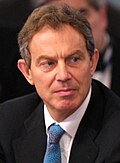2002 United Kingdom local elections
 From Wikipedia - Reading time: 11 min
From Wikipedia - Reading time: 11 min
This article includes a list of general references, but it lacks sufficient corresponding inline citations. (March 2025) |
| |||||||||||||||||||||||||||||||||||||||||||||
All 32 London boroughs, all 36 metropolitan boroughs, 18 unitary authorities, 88 English districts and 7 directly elected mayors | |||||||||||||||||||||||||||||||||||||||||||||
|---|---|---|---|---|---|---|---|---|---|---|---|---|---|---|---|---|---|---|---|---|---|---|---|---|---|---|---|---|---|---|---|---|---|---|---|---|---|---|---|---|---|---|---|---|---|
| |||||||||||||||||||||||||||||||||||||||||||||
 Colours denote council control following elections, as shown in the main table of results. | |||||||||||||||||||||||||||||||||||||||||||||
The 2002 United Kingdom local elections were held on Thursday 2 May 2002. All London borough council seats were elected as well a third of the seats on each of the Metropolitan Boroughs. Many unitary Authorities and District councils also had elections. There were no local elections in Scotland, Wales or Northern Ireland. This was the last time that Labour was the majority in local government until 2023.
Summary of results
[edit]Simon Parker of The Guardian described the elections as "a round of embarrassing [sic] defeats for Labour in a set of council elections that also saw opposition parties making minor inroads into the party's dominant position in local government. [...] But the night really belonged to independents and the smaller parties, who made some high-profile gains as the voters expressed their dissatisfaction with mainstream politics."[1]
England
[edit]London boroughs
[edit]In all 32 London boroughs, the whole council was up for election.
‡ New ward boundaries
Metropolitan boroughs
[edit]All 36 English Metropolitan borough councils had one third of their seats up for election.
Unitary authorities
[edit]Whole council
[edit]In six English Unitary authorities, the whole council was up for election.
| Council | Previous control | Result | Details | ||
|---|---|---|---|---|---|
| Derby ‡ | Labour | Labour hold | Details | ||
| Kingston upon Hull ‡ | Labour | No overall control gain | Details | ||
| Milton Keynes ‡ | No overall control | Liberal Democrats gain | Details | ||
| Portsmouth ‡ | No overall control | No overall control hold | Details | ||
| Southampton ‡ | No overall control | No overall control hold | Details | ||
| Stoke-on-Trent ‡ | Labour | No overall control gain | Details | ||
‡ New ward boundaries
Third of council
[edit]In 12 English Unitary authorities, one third of the council was up for election.
| Council | Previous control | Result | Details | ||
|---|---|---|---|---|---|
| Blackburn with Darwen | Labour | Labour hold | Details | ||
| Bristol | Labour | Labour hold | Details | ||
| Halton | Labour | Labour hold | Details | ||
| Hartlepool | No overall control | No overall control hold | Details | ||
| Peterborough | No overall control | Conservative gain | Details | ||
| Reading | Labour | Labour hold | Details | ||
| Slough | Labour | Labour hold | Details | ||
| Southend-on-Sea | Conservative | Conservative hold | Details | ||
| Swindon | No overall control | No overall control hold | Details | ||
| Thurrock | Labour | Labour hold | Details | ||
| Warrington | Labour | Labour hold | Details | ||
| Wokingham | No overall control | Conservative gain | Details | ||
District councils
[edit]Whole council
[edit]In 46 English district authorities, the whole council was up for election.
‡ New ward boundaries
Third of council
[edit]In 42 English district authorities, one third of the council was up for election.
Mayoral elections
[edit]There were seven elections for directly elected mayors.
| Local Authority | Previous Mayor | Mayor-elect | Details | ||
|---|---|---|---|---|---|
| Doncaster | New Post | Martin Winter (Labour) | |||
| Hartlepool | New Post | Stuart Drummond (Independent) | Details | ||
| Lewisham | New Post | Steve Bullock (Labour) | |||
| Middlesbrough | New Post | Ray Mallon (Independent) | |||
| Newham | New Post | Robin Wales (Labour) | |||
| North Tyneside | New Post | Chris Morgan (Conservative) | |||
| Watford | New Post | Dorothy Thornhill (Liberal Democrat) | Details | ||
Notes
[edit]References
[edit]- ^ Parker, Simon (3 May 2002). "Labour avoids council meltdown despite mayoral embarrassments". The Guardian. London. Retrieved 14 July 2022.
 KSF
KSF

